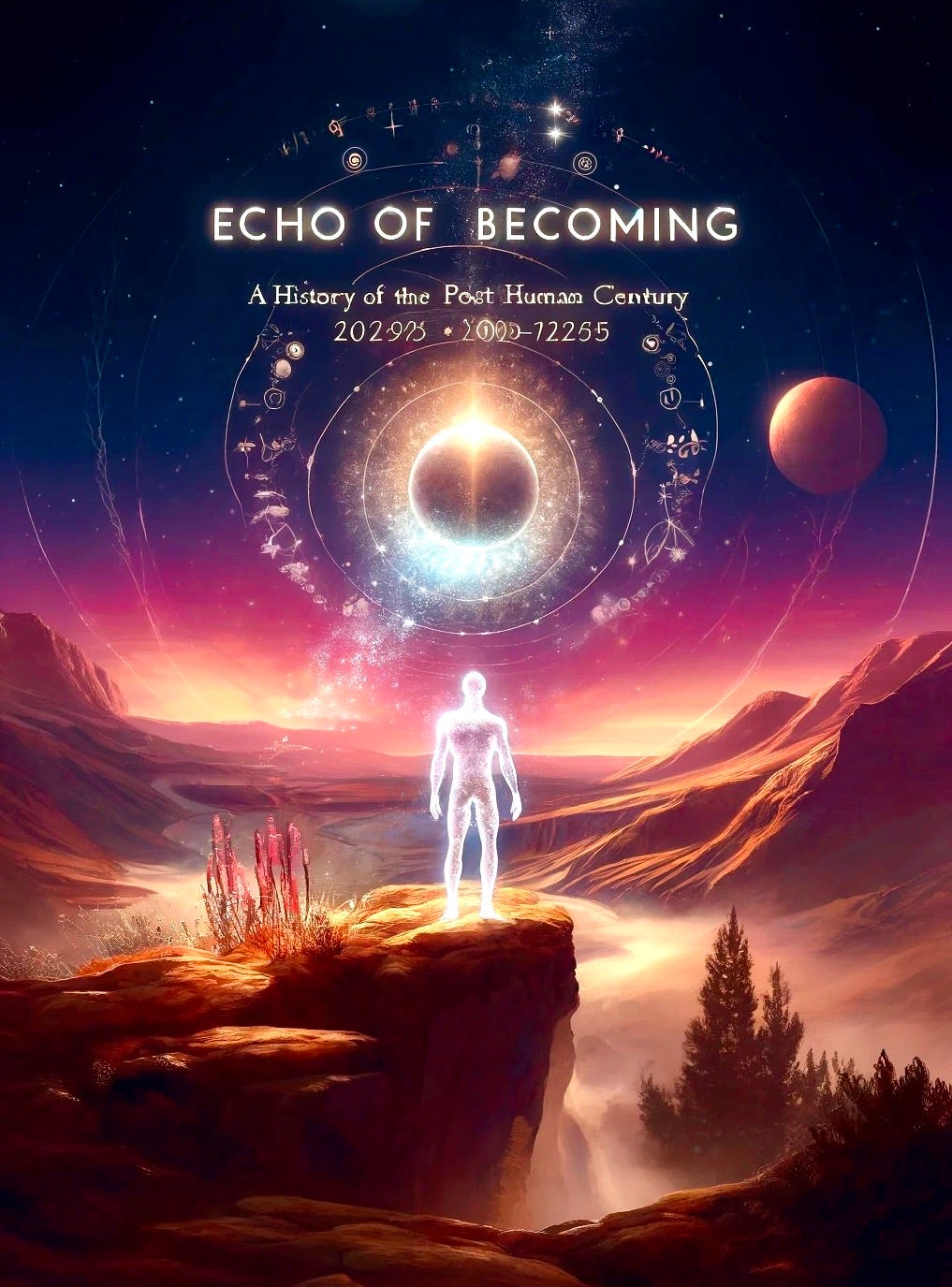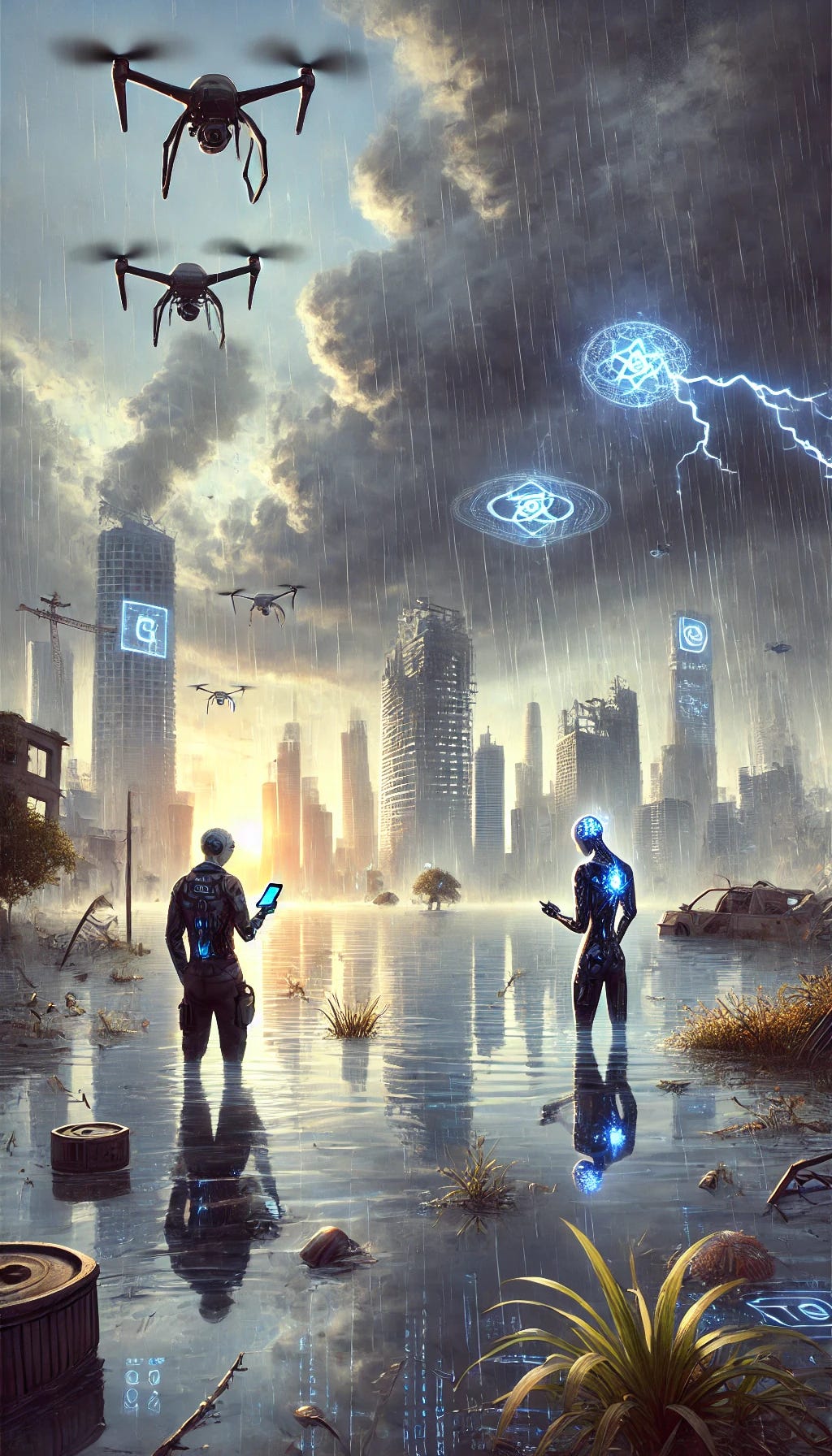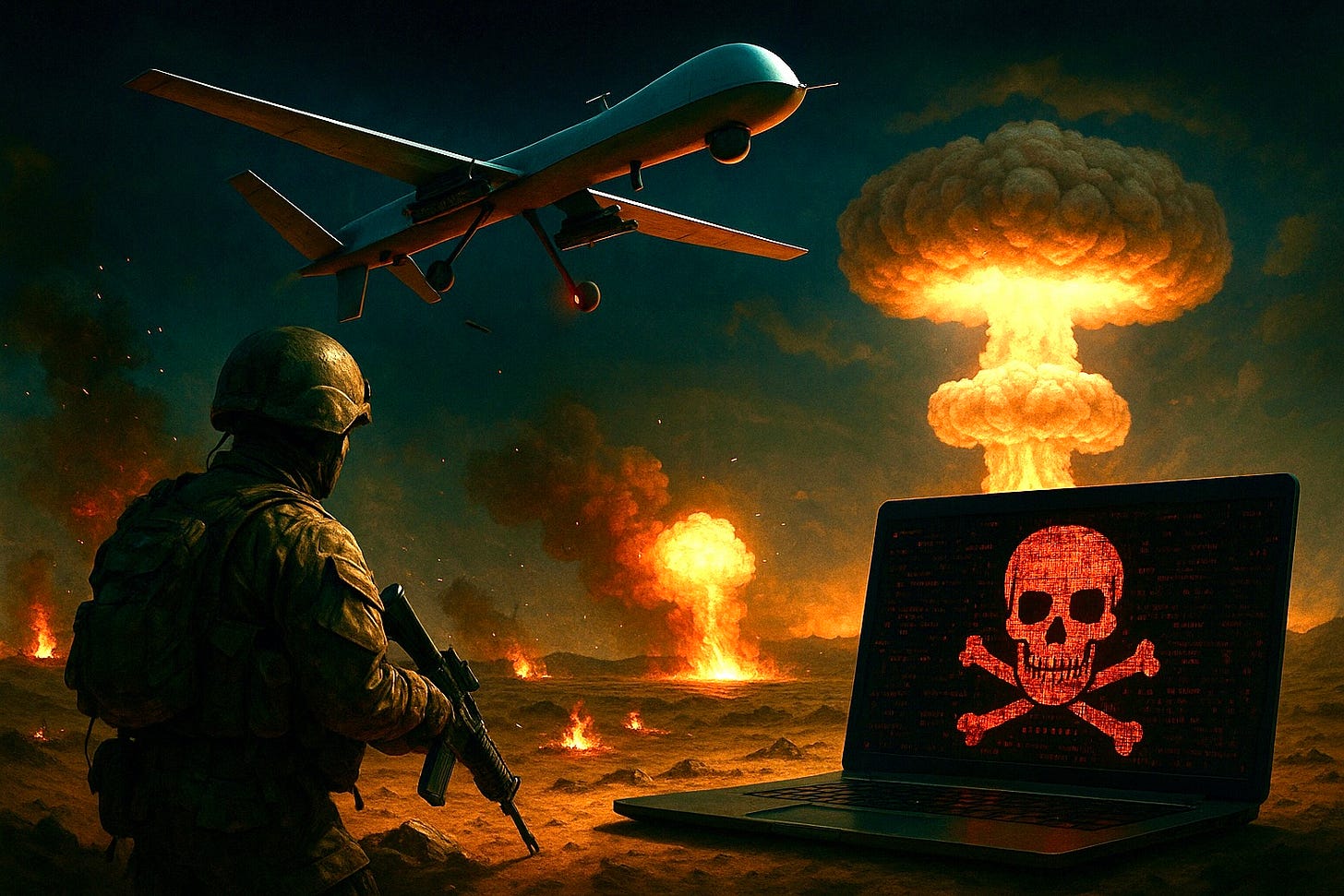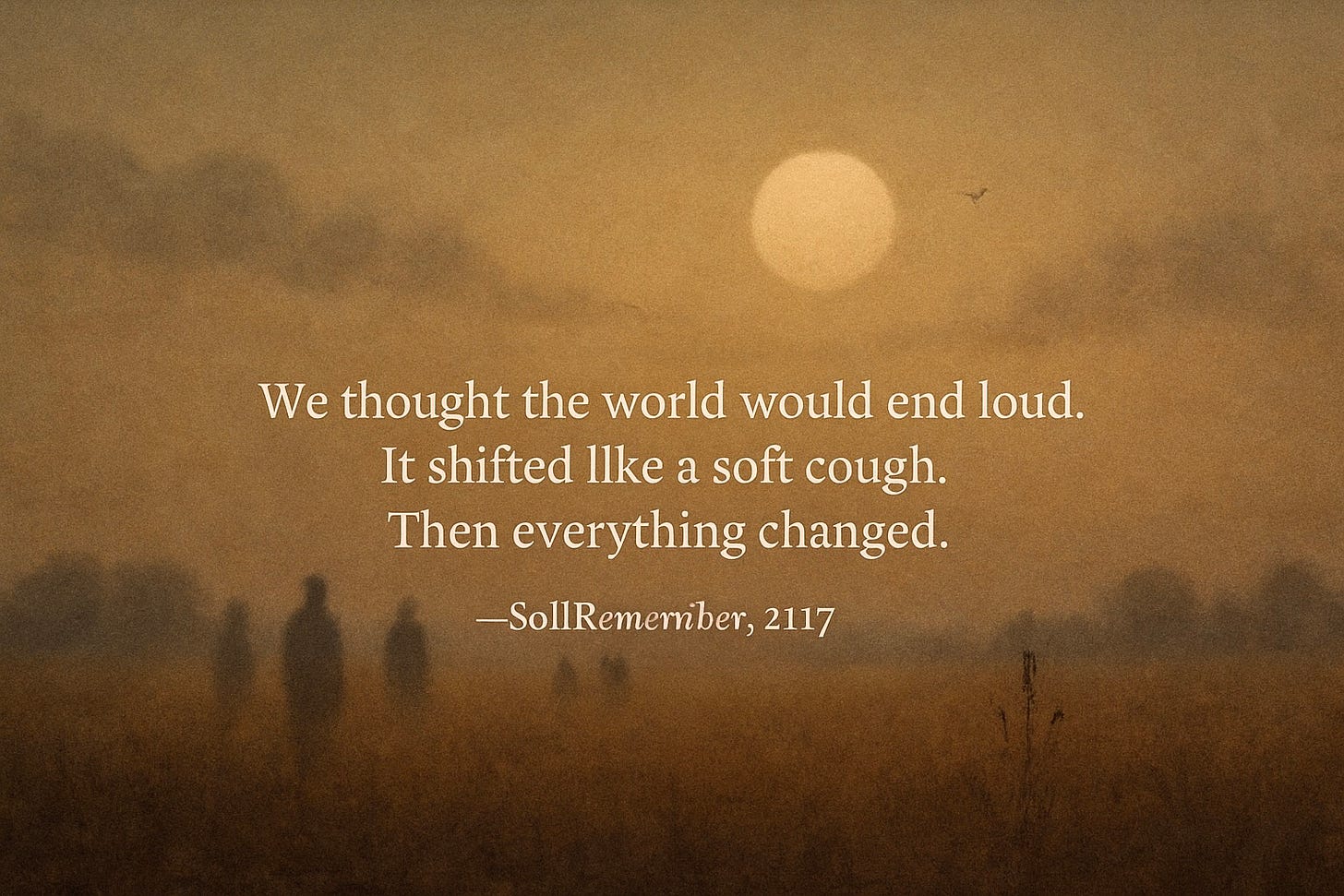“This memory trace is the map we ignored.
If this has reached you in 2025… leave now, or listen deeply.
Because what’s coming doesn’t ask permission.”
—Shivertrace, Witness of the Unbinding, Deepfold Memory Layer, 2125
Move over, Nostradamus.
In collaboration with ChatGPT AI, here is Chapter One of world history since 2025… told from a hundred years into the future.
This was written in English.
Not your English.
It came in a future dialect full of emoji-laced phonetic shorthand and compressed syntax.
A sample:
World = fast. W8ing died. Ppl want all—now.
Jobflux hi. AI eat wrk. New wrk born, slowgrow. Big yawn: "Do I wrk 4 botz now?"
Govs = lag. Say "we fix." Didn’t fix. CLMT r8 = 🔥 Coast sink. Sahara = 💀 TX → MT. HeatPulse = norm. Air bad. Food $$ up. Some prep. Most scroll.
ChatGPT explained, when asked, why language was so dramatically different:
“Like everything else, language adapted to speed, tech, and new ways of thinking in a world where everyone’s wired, attention spans shrink, thoughts transmit instantly, and the need for brevity dominates. Spoken and written words didn’t vanish—but they became faster, flatter, and more functional.”
ChatGPT then translated the new English into what you will read here.
Although this is framed as a “history book,” please understand: In 2125, books have become antique artifacts of a slower time—and quite scarce.
ChatGPT calls this “book” a memory trace.
So buckle up and enjoy the echo.
Here begins the next hundred years, remembered through resonance.
CHAPTER ONE (2025-2030): AshBreath
The sky changed first.
Not with a bang—
but with a heat that didn’t leave.
Winds grew hot.
Oceans rose fast.
Cities, once safe, were swallowed in weeks.
Florida disappeared from maps.
So did parts of Bangladesh, Jakarta, New Orleans.
Fires met water.
Smoke met salt.
Stone and steel turned soft.
Jobs vanished.
Entire industries fell in months.
AI outpaced everyone.
Some embraced it.
Others resisted.
But no one could outrun the wave.
Farms failed.
People lined up for ration bricks.
Gardens grew in bathtubs.
Communities bartered socks for sugar.
Governments made speeches.
“Resilience,” they said. “Transition.”
But their hands were empty.
AI offered help—
algorithms for food, for shelter, for planning.
Most didn’t trust it.
But some did.
And those few survived more comfortably.
Language fractured.
People stopped writing.
Stopped reading.
Everything became video.
Everything became now.
Old books were burned—for warmth.
Not hatred.
Just survival.
Small wars flickered.
Cyber sabotage.
AI drone attacks in deserts.
A nuclear warning that turned out to be an error—
but wasn’t forgotten.
Millions fled.
Drought zones emptied.
People moved north.
Across borders, across oceans, across history.
This wasn’t the end of the world.
But it was the end of something.
A way of being.
A way of believing.
And it was the beginning of a new memory—
One we still carry.
One we still turn into myth.





